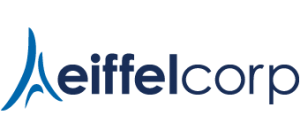
There has been a huge shift in the educational system over the past few years, both in the African and global contexts. This shift has allowed for more use of technology in the classroom. Institutions turned to quick solutions to continue teaching and learning through Learning Management Systems, virtual meeting platforms such as Zoom or recorded lectures.
Of course, there were ups and downs in the sector due to the transition but eventually, institutions seemed to have been getting the hang of things. One would expect 2023 to be a smooth ride, as we have somewhat had what seems like an adequate time for students and educators to adjust to the new world of education. Or have we?
Navigating Through the Change
Institutions have had to execute a course of action in response to the global pandemic (Covid 19) that emerged about three years ago. In our panel discussion in 2022 themed: Life After Covid at Higher Education Systems a big focus was placed on the need for intense training for educators to facilitate the transition.
We have also seen the shift from a focus on institutions to one that is more student-centric. This holds true to the idea that education will never be what it was before. This is evident in the trends emerging in educational technology. Here are seven key trends in EdTech for 2023.
- Artificial Intelligence (AI) – This year will see an increase in the use of AI in teaching, learning and assessment tools. With the launch of ChatGPT came great disruption at the start of 2023. It is no longer a question of when AI will impact education, but rather how we are going to optimise adaptive and personalised learning through these technologies. In other words, while debates about academic integrity are raging, it will be important for institutions to embrace new technologies and make them work for them, rather than resist.
- Digital Frameworks and Cloud Partnerships – It is well known that the future of education is gradually leaning toward technology. A part of the reason is that a lot of us have come to realise and enjoy the benefits that come with learning online. Institutions are encouraged to invest in high-quality digital infrastructure and to shift resources to the cloud, to ensure that everyone has access to meaningful education in the future.
- Blended & Hybrid Learning (Hyflex) – In trying to settle the ongoing debate between physical and digital learning, the hybrid mode of learning has proven to be the strategy to maintain the balance. Most institutions have hopped onto this learning mode, producing more effective and personalised results. This reiterates the shift towards a student-centric institution, where the preferences and needs of students are placed at the centre of learning.
- Learning Analytics – Continuing with this theme, institutions are increasingly investing in EdTech solutions that provide insights into student performance through learning analytics to improve student engagement and outcomes. This helps institutions to identify areas of improvement, track progress, and make data-driven decisions.
- Mobile Learning – With the increase in mobile phone usage in Africa, mobile-compatible solutions are becoming necessary for students to have access to learning materials and tools on the go. Therefore, it’s essential to ensure that Edtech solutions are mobile-friendly and can be used on different devices.
- Virtual reality (VR) and augmented reality (AR) – These are key features in the digital technology revolution in education. VR and AR bring immersive experiences to students. Technology gives educators the opportunity to present topics in new and creative ways, enhancing what is learnt in textbooks.
- Cybersecurity – The growing use of technology in education has increased the risk of cyberattacks and data breaches. Institutions must invest in cybersecurity solutions that protect sensitive data and ensure data security.
Greater Access to Meaningful Education
At Eiffel Corp, we partner with institutions to enable greater access to meaningful education. Our solutions help institutions navigate through the imminent and future changes that technology brings to education. We walk the journey with you.



